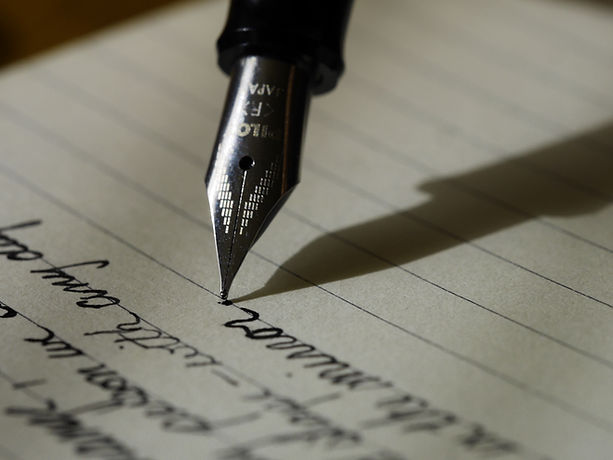Heading 1

EXHIBITION STATEMENT
The challenges of 2020 emphasized how the power contained within an individual narrative is more important than ever. The core concept of this workshop was “YOUR story matters” and how creative writing is a way to express one’s unique creative passions. Furthermore, this workshop examined creative writing through an intersectional lens; asking students to critically examine text by how it represented gender, sexuality, and race and how different marginalizations affect character building and worldbuilding. This intersectional lens examines creative writing’s impact within the context of institutions: allowing students to see how writing can be used to both exclude marginalized groups and be inclusive of diverse narratives.
To give students choices over how they wanted to be able to express themselves, the creative writing workshop had three options: writing part of a novel, writing short fiction, or writing poetry. The first third of the workshop was dedicated to exploring the basics of novels, short fiction and poetry, the second third featured students practicing the different mediums themselves, and the last four weeks were primarily dedicated to editing.
This workshop took influence from Jiménez-Porter Writer’s House poetry and prose workshops, which are constructed on Rosalie Kearn’s “Voice of Authority'' which emphasizes the importance of author agency in one’s work. Following Kearn’s ideology and the Writer’s House format, this workshop emphasized community building- authors should never be silenced or feel like their work is being taken over by others. Inspired by this program, the workshop included constructive criticism methods ranging from word choice to characterization.
This workshop was open to Arts Scholars students of all creative writing skill levels. No matter how much prior experience participants had, students developed a healthy writer’s mindset, reviewed the fundamentals of writing and collaborated with peers. By focusing on these three skills, participants improved their writing skills and 'nurtured students' development of a sense of agency....' over their words. This impact can be credited to the novelist Abbie Emmons’ mindset of balancing guidance and freedom to enable students to succeed in their creative writing endeavors.
Heather-Erin Bremenstuhl, Harold Burgess, Gabrielle Tillenburg, and Damien Singlemann have all been incredibly helpful during this entire journey. They have all been amazingly supportive and this workshop wouldn’t have been successful without their advice.
Works Cited
“How to Write a Hook For Your Story” uploaded by Abbie Emmons. YouTube. www.youtube.com/watch? v=s7a6R5lVW3g
“How to WORLD BUILD (Like a Boss!)” uploaded by Abbie Emmons. YouTube. https://www.youtube.com/watch? v=54I6nKUg-Oo
“How to Write GREAT Dialogue” uploaded by Abbie Emmons. YouTube. https://youtu.be/tCZSndWrZZM
Kearn, Rosalie Morales. “Voice of Authority: Theorizing Creative Writing Pedagogy”, National Council of Teachers of English. 2009.
Additional References
Burroway, Janet “Imaginative Writing”. Florida State University, Penguin Academics.
Golberg, Natalie. “Writing Down the Bones” Shambala Production, 1986.
“Hard Worldbuilding vs. Soft Worldbuilding | A Study of Studio Ghibli” uploaded by Hello Future Me. YouTube. https://youtu.be/gcyrrTud3x4
Lamott, Anne. Bird by Bird: Instructions on Writing and Life. Canongate, 2020.
“Kimberlé Crenshaw: What is Intersectionality?” uploaded by National Association of Independent Schools (NAIS). YouTube. https://youtu.be/ViDtnfQ9FHc
Kiteley, Brian “3. A.M Epiphany Uncommon Writing Exercises That Transform Your Fiction” Writer’s Digest Books.
“Worldbuilding: How to Start — Worldbuilding Series” uploaded by Tale Foundry. YouTube.https://youtu.be/lkDQrmyElzU